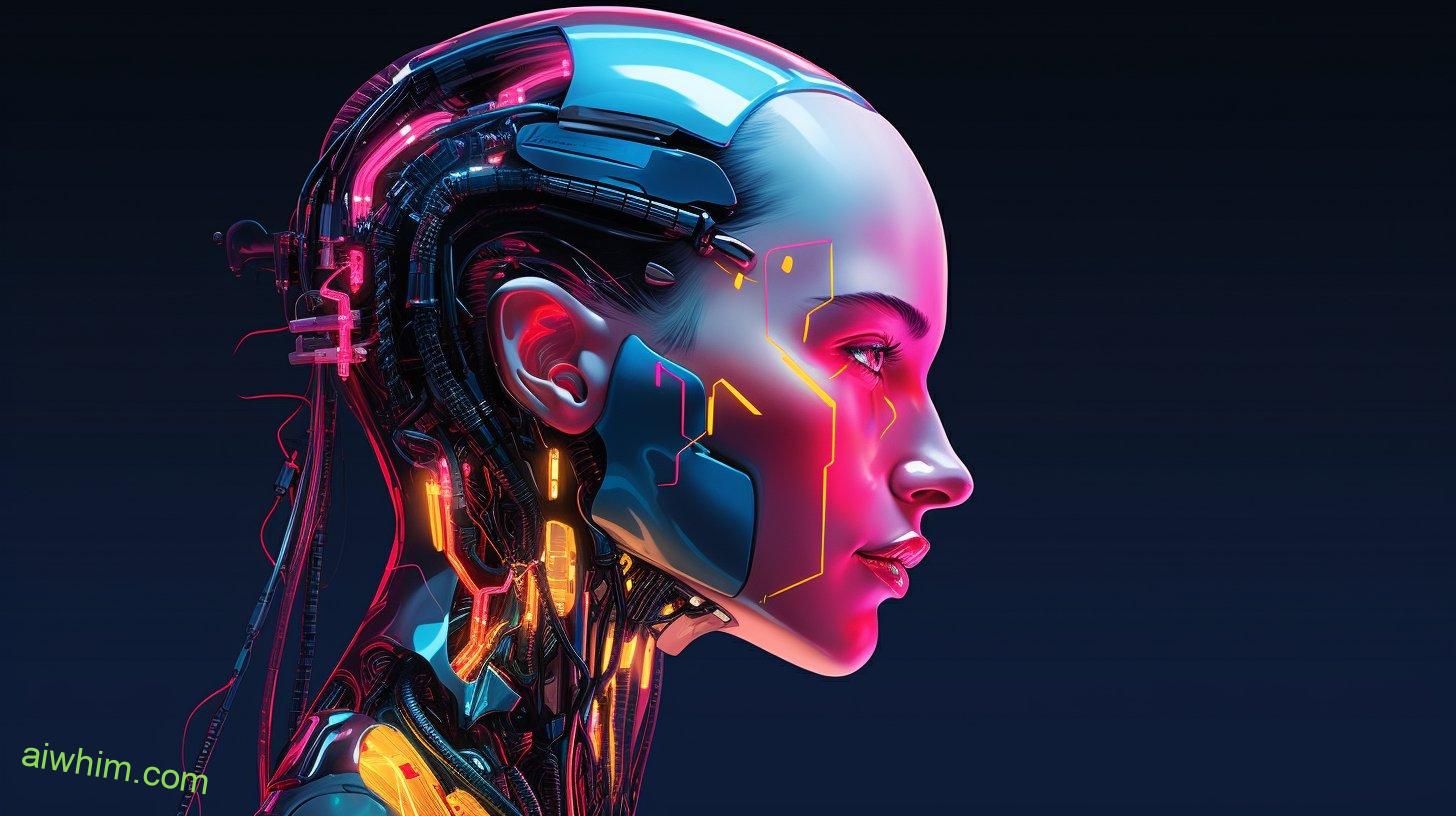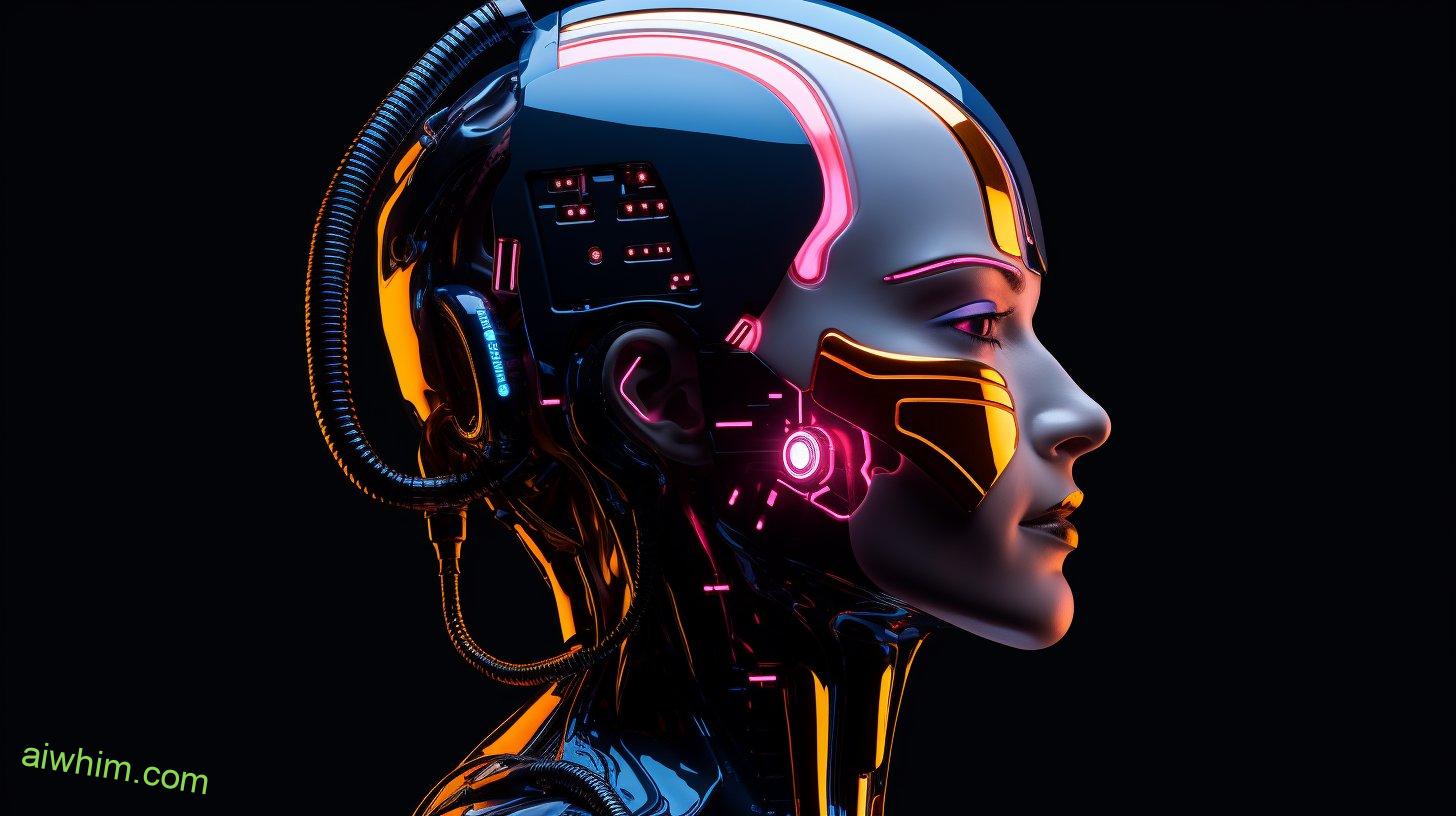Are you worried about the future of landscaping and groundskeeping jobs? Well, brace yourself, because AI is making its way into the industry.
But don’t fret just yet! This article explores whether AI will replace landscaping and groundskeeping workers.
Discover the advancements in AI technology, the challenges faced by workers, and the skills needed to thrive in the age of AI.
So, grab a cup of coffee and let’s dive into this fascinating topic together!
Key Takeaways
- AI can automate tasks such as mowing lawns and trimming bushes, increasing efficiency and productivity.
- AI-powered systems can optimize irrigation schedules, conserving water resources and promoting environmental sustainability.
- AI can help in identifying and managing pests and diseases, reducing the need for harmful chemical pesticides.
- Workers need to adapt their skills to the AI era and stay informed about advancements in AI technology to remain relevant in the job market.

The Impact of AI on Landscaping and Groundskeeping Workers
You should consider how AI will affect your job as a landscaping and groundskeeping worker. The introduction of AI in the industry has the potential to greatly impact your job satisfaction and the implications for the environment.
AI technologies have the ability to automate various tasks within landscaping and groundskeeping, such as mowing lawns, trimming bushes, and even planting flowers. This automation can lead to increased efficiency and productivity, allowing you to complete your work faster and potentially take on more projects. However, it also means that certain manual tasks that were once performed by human workers may no longer be necessary. This could lead to a decrease in job satisfaction, as you may find yourself with fewer responsibilities and less variety in your work.
On the other hand, the use of AI in landscaping and groundskeeping can have positive implications for the environment. AI-powered systems can optimize irrigation schedules, ensuring that plants receive the right amount of water at the right time. This can help conserve water resources and reduce water wastage, contributing to environmental sustainability. Additionally, AI can help in the identification and management of pests and diseases, allowing for more targeted and efficient treatment methods. This reduces the need for harmful chemical pesticides, promoting a healthier and more natural approach to maintaining landscapes.
Overall, while AI may bring certain challenges and changes to the landscaping and groundskeeping industry, it also presents opportunities for increased efficiency and environmental sustainability. It’s important for you to stay informed about the advancements in AI technology and adapt your skills accordingly to remain relevant in the evolving job market.

Advancements in AI Technology for Landscaping and Groundskeeping
With advancements in AI technology, landscaping and groundskeeping tasks can be automated and completed more efficiently. This raises the question of whether AI will replace landscaping and groundskeeping workers entirely. While automation can bring about increased efficiency and cost-effectiveness, it also raises ethical implications regarding the impact on human employment. Let’s explore the current advancements in robotic technology and the ethical considerations surrounding AI in landscaping.
Advancements in robotic technology have led to the development of sophisticated AI systems capable of performing various landscaping and groundskeeping tasks. These AI-powered robots can mow lawns, trim hedges, and even plant flowers with precision and accuracy. They can work tirelessly, without the need for breaks or rest, ensuring that the outdoor spaces are well-maintained at all times.
To give you a better understanding of the capabilities of AI in landscaping, here is a comparison between traditional landscaping methods and AI-powered automation:
| Traditional Landscaping Methods | AI-Powered Automation |
|---|---|
| Time-consuming and labor-intensive | Efficient and time-saving |
| Prone to human errors | Precise and accurate |
| Limited availability and scheduling conflicts | 24/7 availability |
| Requires regular maintenance and supervision | Minimal maintenance required |
| Costly in the long run | Cost-effective and scalable |
While AI automation offers numerous benefits, it is important to consider the ethical implications. The potential displacement of human workers raises concerns about unemployment and job security. It is crucial to strike a balance between technological advancements and the preservation of human employment opportunities.

Challenges Faced by Landscaping and Groundskeeping Workers in the Age of AI
Sometimes, despite the advancements in AI technology, landscaping and groundskeeping workers still face challenges in adapting to the changes. As a worker in this field, you may be concerned about the impact of AI on your job prospects. However, it’s important to remember that technology should be seen as a tool to enhance your work, not replace it entirely.
Here are some challenges you might encounter:
- Technological Learning Curve: Embracing new AI tools and technologies can be daunting at first. However, with the right training and support, you can quickly adapt and master these tools to improve your efficiency and effectiveness.
- Job Redefinition: As AI takes over certain repetitive tasks like mowing lawns or trimming hedges, your role as a landscaping and groundskeeping worker might evolve. Instead of performing mundane tasks, you can focus on more complex and creative aspects of the job, such as designing and planning landscapes.
- Maintaining Human Touch: One of the concerns with AI is the loss of personal touch. Landscaping and groundskeeping work often involves interacting with clients and understanding their specific needs. It’s essential to prioritize human connection and ensure that AI is used to augment your skills, not replace the human element.
- Upskilling Opportunities: With the rise of AI, there’s a growing demand for skilled workers who can operate and maintain these technologies. By investing in your education and acquiring new skills, you can position yourself as an invaluable asset in the industry.
- Job Security: While AI may automate some tasks, it can’t replace the expertise and creativity of a human worker. By continuously learning and adapting, you can secure your position in the industry and maintain job security.

The Role of Robotics in Landscaping and Groundskeeping Industry
Robots in the landscaping and groundskeeping industry are revolutionizing tasks such as mowing lawns and trimming hedges, increasing efficiency and productivity. With the advancement of technology, robotic mowers and smart irrigation systems are becoming increasingly popular. These innovations are changing the way we approach landscaping, offering a new level of freedom and convenience.
Imagine never having to spend your weekends mowing the lawn or sweating over pruning shears. Robotic mowers are here to liberate you from the tedious and time-consuming task of maintaining your outdoor space. These intelligent machines operate autonomously, effortlessly navigating your yard and keeping the grass at the perfect height. You can simply sit back and relax, enjoying the freedom to spend your time on activities that truly matter to you.
Smart irrigation systems are another game-changer in the landscaping industry. These systems use sensors and weather data to optimize water usage, ensuring that your plants receive just the right amount of water. By eliminating the need for manual adjustments and guesswork, smart irrigation systems save you time, money, and effort. You can have peace of mind knowing that your garden is being taken care of efficiently and responsibly.
Incorporating robotic mowers and smart irrigation systems into your landscaping routine allows you to reclaim your freedom. You no longer have to sacrifice your weekends or spend countless hours tending to the yard. Instead, you can enjoy a beautifully maintained outdoor space without the hassle. Embrace the future of landscaping and groundskeeping and experience the freedom that technology brings.

Skills and Training Needed for Landscaping and Groundskeeping Workers in the AI Era
You need to adapt your skills and training to keep up with the changes in the landscaping and groundskeeping industry during the AI era. With the implementation of AI in various industries, including landscaping and groundskeeping, it’s crucial to stay updated and equipped with the necessary knowledge and expertise. Here are some key points to consider in order to thrive in this evolving field:
- Continuous AI Training: Embrace the opportunities for AI training and education. Stay informed about the latest advancements in AI technology and how it can be integrated into your work. By staying ahead of the curve, you can effectively utilize AI tools to enhance your productivity and efficiency.
- Mastering AI Implementation: Develop a strong understanding of how AI is implemented in the landscaping and groundskeeping industry. Familiarize yourself with AI-powered tools and equipment, such as automated irrigation systems, autonomous mowers, and smart sensors. This knowledge will enable you to effectively operate and maintain these technologies.
- Adapting to New Roles: As AI takes over certain repetitive tasks, embrace the opportunity to take on new responsibilities and roles. Focus on developing skills that complement AI technology, such as data analysis, project management, and customer service. This will ensure your relevance and value in the industry.
- Emphasizing Creativity and Innovation: While AI can handle routine tasks, it can’t replicate human creativity and innovation. Cultivate your artistic abilities and unique ideas to provide clients with personalized and exceptional landscaping and groundskeeping services.
- Building Strong Relationships: In the midst of technological advancements, maintaining strong relationships with clients and colleagues remains crucial. Foster open communication, trust, and collaboration to effectively integrate AI technology into your work while preserving the human touch.

Job Prospects for Landscaping and Groundskeeping Workers in the Face of AI
Embrace the potential for job growth and new opportunities as AI technology continues to impact the landscaping and groundskeeping industry. Despite concerns about job security, the integration of AI in this field can actually create more job opportunities rather than replace human workers.
AI technology has the ability to streamline and enhance various tasks in the landscaping and groundskeeping industry, such as mowing, irrigation, and plant care. While some may fear that this would lead to unemployment, it’s important to remember that AI is designed to augment human capabilities, not replace them entirely. As a result, there will always be a need for skilled workers who can oversee and manage the AI systems, ensuring their proper functioning and maintenance.
Furthermore, the introduction of AI can enable landscaping and groundskeeping companies to expand their services and cater to a wider range of clients. For instance, AI-powered drones can be used for aerial surveys and analysis of large areas, allowing companies to take on larger projects that were previously not feasible. This opens up new job opportunities for technicians, drone pilots, and data analysts who can work in conjunction with AI systems.
In addition, the integration of AI can lead to the development of new technologies and tools within the industry. This creates a demand for individuals with the skills and knowledge to design, develop, and operate these AI-powered systems. By embracing this technological advancement, you can position yourself as a valuable asset in the industry and secure your job for the long term.

Ethical Considerations Surrounding AI Adoption in Landscaping and Groundskeeping
As an industry professional, it’s important to address the ethical considerations involved in the adoption of AI in landscaping and groundskeeping. AI technology has the potential to revolutionize the industry, but it also raises important questions about its impact on society.
- Privacy Concerns: With AI being used to collect and analyze data, there’s a concern about the privacy of individuals. It’s crucial to ensure that any data collected is used ethically and with the consent of the individuals involved.
- Job Displacement: One of the most significant ethical concerns surrounding AI adoption in landscaping and groundskeeping is the potential displacement of human workers. As AI becomes more advanced, there’s a fear that it could replace human workers, leading to unemployment and a loss of livelihoods.
- Fairness and Equity: Another ethical consideration is ensuring that AI adoption in this industry doesn’t exacerbate existing inequalities. It’s important to take measures to ensure that AI benefits are distributed fairly and that opportunities for employment and advancement are accessible to all.
- Transparency and Accountability: AI algorithms and systems should be transparent and accountable. Industry professionals should be able to understand how these systems work and be able to explain any decisions made by AI to their clients.
- Ethical Decision-Making: Lastly, it’s essential to establish guidelines and ethical frameworks for the use and deployment of AI in landscaping and groundskeeping. This will help ensure that AI is used in a way that aligns with societal values and respects the rights and dignity of individuals.

Strategies to Adapt and Thrive as AI Impacts the Landscaping and Groundskeeping Industry
To successfully navigate the impact of AI on the landscaping and groundskeeping industry, it’s crucial for you to develop innovative strategies and embrace collaboration.
The rise of AI technology has undoubtedly had a significant impact on various industries, and the landscaping and groundskeeping sector is no exception. However, rather than viewing AI as a threat to your livelihood, it’s important to recognize the opportunities it presents and adapt accordingly.
One of the key adaptation strategies in this evolving landscape is to focus on tasks that require human touch and creativity. While AI can efficiently handle repetitive and mundane tasks, it still lacks the ability to replicate the artistic and imaginative aspects of landscaping and groundskeeping. By honing your skills in design and aesthetics, you can ensure your value in the industry remains high.
Another important adaptation strategy is to embrace collaboration. AI technology can assist you in streamlining your work processes and increasing efficiency. By collaborating with AI systems, you can leverage their capabilities to automate routine tasks, allowing you to focus on more complex and strategic aspects of your work.
Furthermore, staying updated with the latest advancements in AI technology is essential. By continuously learning and upskilling yourself, you can position yourself as a knowledgeable and valuable resource in the industry. This won’t only help you adapt to the changing landscape but also open up new opportunities for growth and advancement.

Frequently Asked Questions
How Can Landscaping and Groundskeeping Workers Adapt to the Increasing Use of AI Technology in Their Industry?
Incorporate AI technology in your landscaping and groundskeeping practices to stay ahead in the industry. Embrace the benefits of artificial intelligence, such as efficient planning and automated tasks, to adapt and thrive in this evolving field.
What Are Some Potential Job Prospects for Landscaping and Groundskeeping Workers in the Future, Considering the Rise of AI?
Potential job prospects for you in landscaping and groundskeeping are still promising, despite the rise of AI. While AI may impact employment, there will always be a need for human touch and creativity in maintaining outdoor spaces.
Are There Any Ethical Concerns Related to the Adoption of AI in the Landscaping and Groundskeeping Industry?
As you explore the adoption of AI in the landscaping and groundskeeping industry, you may come across ethical concerns and consider its impact on job security. These are important factors to consider when making decisions.
What Skills and Training Are Necessary for Landscaping and Groundskeeping Workers to Thrive in the AI Era?
To thrive in the AI era, landscaping and groundskeeping workers need to develop skills in robotics and adapt to new technologies through training. This will enhance job prospects and increase efficiency and productivity, while addressing ethical concerns.
Can Robotics Play a Significant Role in Improving Efficiency and Productivity in the Landscaping and Groundskeeping Industry?
Robotics and AI can greatly enhance efficiency and productivity in the landscaping and groundskeeping industry. By incorporating these technologies, you can revolutionize the way tasks are performed, resulting in more time and freedom for you.

Conclusion
As AI continues to advance in the landscaping and groundskeeping industry, it may seem like your job is at risk. However, by embracing the changes and acquiring the necessary skills, you can adapt and thrive in this new era.
Remember, just like the plants you care for, growth and evolution are essential. So, don’t fear AI; let it be your ally in creating beautiful landscapes and maintaining outdoor spaces.
Together, you and AI can create a harmonious balance in the industry’s future.







